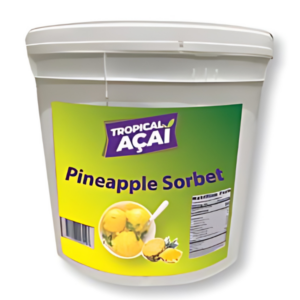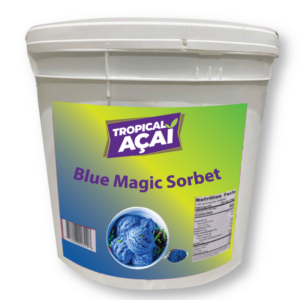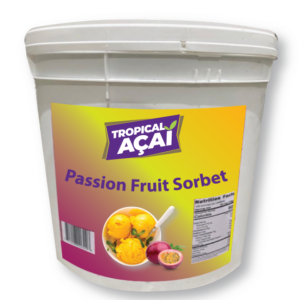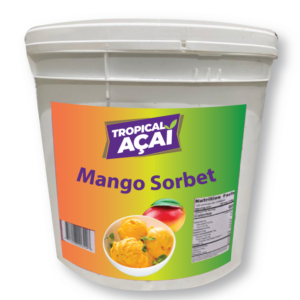Did you know that the market for acai berries is projected to reach around USD 1 billion by 2028? That’s right! The economic impacts of acai and pitaya production are significant and growing rapidly. With increasing consumer demand for these superfruits, the industry has experienced tremendous growth and is set to continue its upward trajectory.
Key Takeaways:
- The market for acai berries is projected to reach around USD 1 billion by 2028.
- Acai berries are used in various sectors, including food and beverages, dietary supplements, pharmaceuticals, and cosmetics.
- The Asia Pacific region is emerging as the fastest-growing market for acai berries.
- The acai berry market has shown resilience and adaptability during the COVID-19 pandemic.
- Sustainable production practices and fair wages are essential for the industry’s long-term success.
The Health Benefits of Acai and Pitaya
Acai and pitaya, also known as dragon fruit, are packed with health benefits that contribute to overall well-being. These superfruits are renowned for their rich nutritional profiles and have gained popularity among health-conscious consumers.
One of the vital health benefits of acai is its high antioxidant content, particularly anthocyanins. Antioxidants help protect the body against oxidative stress, reducing inflammation and fighting off free radicals. This contributes to anti-aging effects and supports a healthy cardiovascular system.
Acai is also a great source of essential fatty acids, fiber, vitamins, and minerals. Combining these nutrients promotes cardiovascular health by helping reduce cholesterol levels and support proper blood flow. Additionally, the fiber content aids in digestive health by promoting regular bowel movements and supporting a healthy gut.
On the other hand, Pitaya is rich in antioxidants, further boosting its health benefits. These antioxidants help strengthen the immune system, protecting the body against harmful pathogens and reducing the risk of infections. Additionally, pitaya supports cardiovascular health by lowering cholesterol levels and improving blood circulation.
Both acai and pitaya are considered superfoods due to their impressive nutritional profiles. They are low in calories and packed with essential nutrients, making them an excellent addition to a balanced diet.
“Acai and pitaya offer a wide range of health benefits due to their rich nutritional profiles. From antioxidant properties that fight against aging to supporting cardiovascular and digestive health, these superfruits are highly sought after by health-conscious individuals.”
The health benefits of acai and pitaya make them popular choices for individuals looking to improve their overall well-being. Incorporating these superfruits into your diet can contribute to a healthier lifestyle and provide your body with essential nutrients.
Health Benefits of Acai:
- High in antioxidants, particularly anthocyanins
- Anti-aging and anti-inflammatory properties
- Supports cardiovascular health
- Aids in digestive health
Health Benefits of Pitaya (Dragon Fruit):
- Rich in antioxidants
- Boosts the immune system
- Supports cardiovascular health
- Improves digestion
Sustainable Acai and Pitaya Production
Sustainable production practices are essential for acai and pitaya to ensure the long-term health of the Amazon rainforest and the communities that depend on it. As the demand for these fruits has grown, concerns about deforestation and its environmental impact have emerged. To address this issue, efforts are being made to promote sustainable harvesting methods and reforestation initiatives.
One of the critical aspects of sustainable acai and pitaya production is ensuring fair wages and ethical sourcing for the workers involved in the harvesting process. By providing fair compensation and improving working conditions, the industry aims to support the well-being of the labor force and create a positive social impact.
Certification programs like Fair Trade and Rainforest Alliance are crucial in promoting environmentally responsible practices and worker welfare within the industry. These certifications help consumers identify products that are sourced sustainably and contribute to preserving the Amazon rainforest.
“Sustainable production practices are vital to protect the Amazon rainforest and the communities that rely on it. By promoting ethical sourcing and fair wages, we can create a more sustainable future for acai and pitaya production.” – Environmentalist
The Environmental Impact of Sustainable Production
Adopting sustainable practices in acai and pitaya production has a positive environmental impact. Sustainable production helps preserve biodiversity and minimizes soil and water pollution by implementing responsible farming techniques and reducing harmful chemicals.
Furthermore, sustainable production methods contribute to the conservation of the Amazon rainforest by reducing deforestation. Reforestation initiatives are also undertaken to restore and protect forested areas that have been impacted.
Overall, sustainable acai and pitaya production aims to achieve a harmonious balance between meeting consumer demand and preserving the natural resources and ecosystems vital for these fruits’ long-term survival.
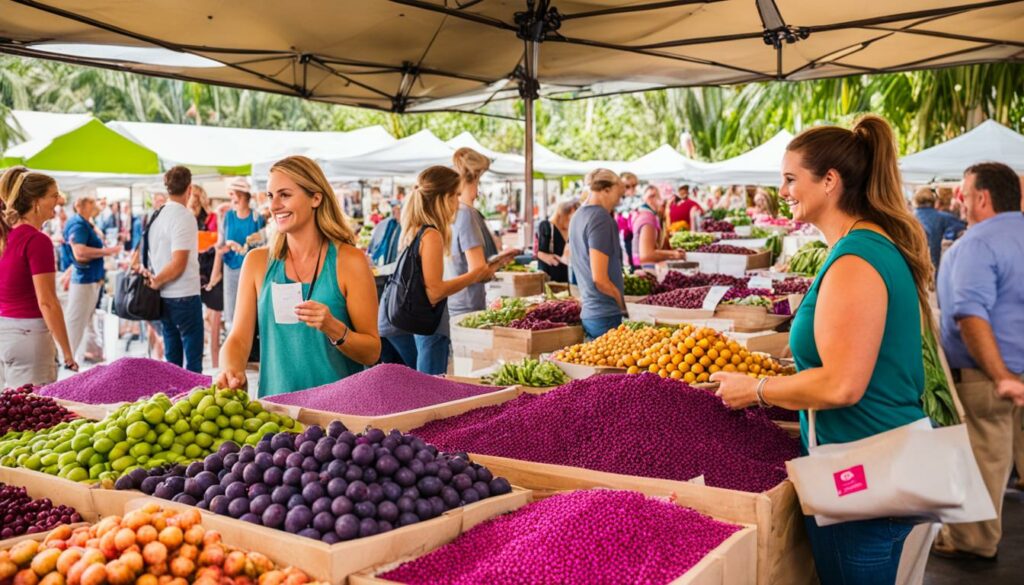
| Benefits of Sustainable Acai and Pitaya Production | Environmental Impact | Social Impact |
|---|---|---|
| Promotes biodiversity conservation | – | Ensures fair wages and improves working conditions |
| Reduces deforestation | – | Safeguards the well-being of workers |
| Minimizes soil and water pollution | – | – |
| – | – | Contributes to the development of sustainable communities |
The Market Potential for Acai and Pitaya
The market potential for acai and pitaya is enormous, driven by the increasing demand for healthier options and functional foods. As health-conscious consumers prioritize their well-being, the global market for acai berries and pitaya is expanding rapidly, presenting lucrative business opportunities.
Acai Market Potential:
The acai berry market is projected to reach approximately USD 1 billion by 2028, with a compound annual growth rate (CAGR) of around 12.20% from 2023 to 2028. This significant growth reflects the rising consumer interest in acai-based products and the increasing popularity of their nutritional benefits. North America dominates the market, but the Asia Pacific region is emerging as a rapidly growing market for acai berries.
Pitaya Market Potential:
The market for pitaya, also known as dragon fruit, is expanding alongside the demand for exotic fruits and the surge in plant-based diets. With its vibrant appearance and numerous health benefits, pitaya is capturing the interest of health-conscious consumers worldwide. As such, the market for pitaya is expected to experience substantial growth in the coming years.
Health-conscious consumers are willing to invest in functional foods like acai and pitaya due to their rich nutritional profiles. With benefits ranging from antioxidants that promote overall well-being to the countless vitamins and minerals they contain, acai and pitaya offer a perfect combination of flavor and nutrition.
As the market for functional foods continues to grow, businesses and investors have a unique opportunity to capitalize on the increasing demand for acai and pitaya. Companies can establish a strong presence in this thriving market by offering innovative products and catering to health-conscious consumers.
Below is a comparison of the market potential for acai and pitaya:
| Market Potential for Acai and Pitaya | Market Value (USD) | Growth Rate |
|---|---|---|
| Acai Berries | Approximately $1 billion by 2028 | CAGR of around 12.20% from 2023 to 2028 |
| Pitaya | Increasing market value | Rapid growth expected |
With their market potential, acai and pitaya have become attractive options for businesses catering to health-conscious consumers seeking functional foods. By capitalizing on these superfruits’ market growth, companies can tap into a profitable sector and contribute to providing nutritious and delicious options for health-conscious individuals.
The Role of Tropical Acai in the Market
Tropical Acai LLC is a global leader in supplying premium, non-GMO organic acai. They have played a crucial role in championing the rise of acai in the market, offering high-quality products that align with the increasing demand for ethically sourced and environmentally friendly options.
Tropical Acai’s extensive distribution network covers regions worldwide, positioning it as a global powerhouse in the acai market. Their commitment to sustainable sourcing and quality assurance, reflected in their certifications like non-GMO and USDA organic, makes them a trusted partner for businesses and consumers looking to capitalize on the acai trend.
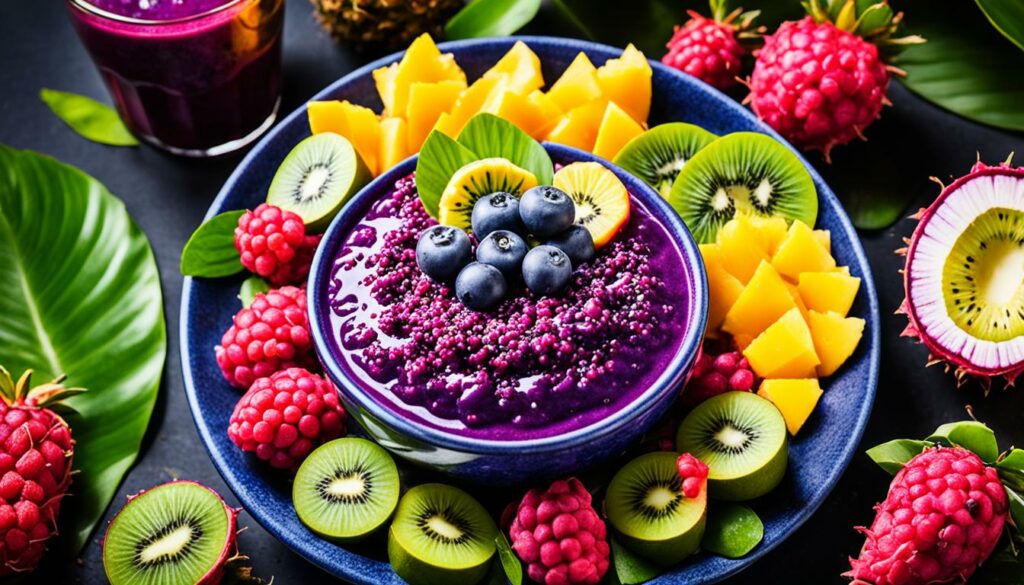
Acai and Pitaya: A Growing Trend
Acai and pitaya have captured the attention of health-conscious individuals worldwide, emerging as popular food trends in recent years. These superfruits have gained significant traction, not only for their numerous health benefits but also for their vibrant and visually appealing nature.
In today’s age of wellness and social media influence, acai and pitaya have become staples in the diets of those seeking to optimize their health and well-being. Platforms like Instagram and Pinterest have played a significant role in showcasing these fruits, with beautiful images of acai bowls and glowing testimonials highlighting their positive impact on overall health.
The increasing popularity of acai and pitaya has sparked creativity in creating innovative products and flavors. From smoothie bowls and energy bars to juices and desserts, these fruits have become versatile ingredients that cater to diverse tastes and dietary preferences.

Acai and pitaya’s rise in food trends has been fueled by their reputation as powerhouses of nutrients. Packed with antioxidants, fiber, and essential vitamins and minerals, these fruits offer a natural and delicious way to enhance one’s diet.
“Acai and pitaya have truly become the go-to ingredients for individuals looking to revamp their eating habits and embrace a healthier lifestyle. The colorful and nutrient-dense nature of these fruits has made them desirable additions to any diet.”
The increasing awareness of acai and pitaya’s health benefits and vibrant appeal has contributed to their status as growing food trends. Whether enjoyed as a refreshing snack or incorporated into creative recipes, these fruits continue to gain popularity, inspiring individuals to embrace healthier and more fulfilling eating.
Acai and Pitaya in the Local Economy
The production of acai and pitaya significantly impacts the local economy in the regions where these fruits are grown. The cultivation and harvesting of these fruits create job opportunities and income generation for local communities, contributing to their overall economic development.
One way acai and pitaya contribute to the local economy is through job creation. Cultivating and harvesting these fruits requires a labor-intensive approach, providing employment opportunities for residents. Small-scale farmers, in particular, play a crucial role in producing acai and pitaya, as they are the backbone of the industry in many regions.
The income generated from acai and pitaya production has a positive multiplier effect on the local economy. As farmers and workers earn income from selling the fruits, they contribute to the circulation of money within the community. This creates a ripple effect, supporting the growth of other local businesses and stimulating economic activity.
The popularity of acai and pitaya also can boost tourism in the regions where they are grown. Many visitors are attracted to these areas to experience the fruits firsthand and explore the beautiful landscapes where they are cultivated. This influx of tourists brings additional revenue to the local economy through spending on accommodations, transportation, and other tourism-related activities.
Overall, acai and pitaya production not only provide economic opportunities for local communities but also contribute to the preservation of traditional farming practices and the cultural heritage of the regions. By supporting small-scale farmers and promoting sustainable agriculture, the local economy can thrive while preserving the natural resources and traditions that make acai and pitaya production unique.
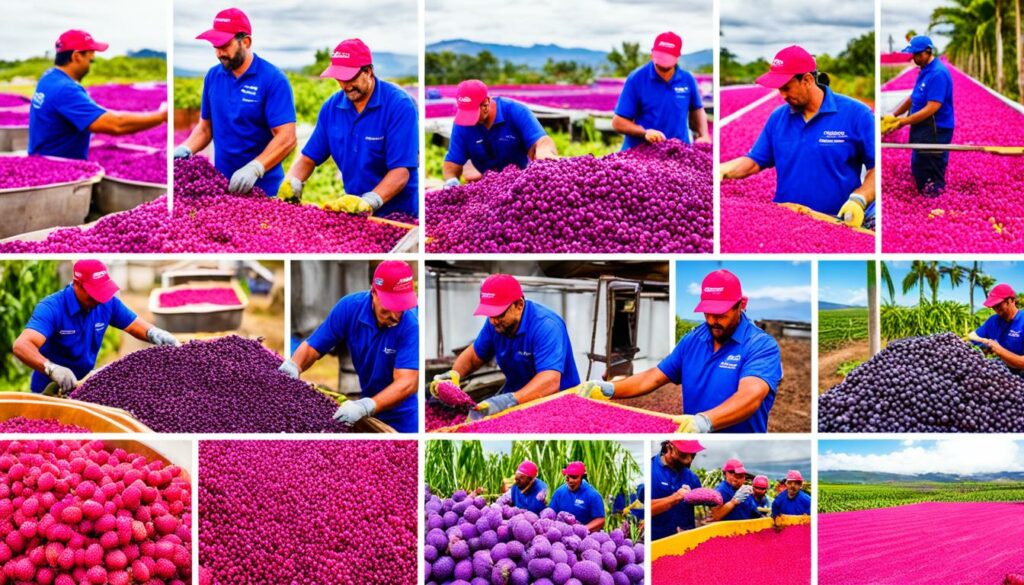
If you’re interested in the impact of acai and pitaya production on the local economy, take a look at the table below for a summary of key statistics:
| Impact | Statistics |
|---|---|
| Job Creation | Creates employment opportunities for local communities, mainly small-scale farmers. |
| Income Generation | Stimulates economic activity and supports the growth of other local businesses. |
| Tourism | Attracts visitors interested in experiencing acai and pitaya firsthand, bringing additional revenue to the local economy. |
In conclusion, acai and pitaya play a vital role in the local economy by creating jobs, generating income, and attracting tourism. The production of these fruits supports small-scale farmers and stimulates economic activity within the regions where they are grown. By incorporating sustainable practices, acai and pitaya production can continue to contribute to the local economy while preserving these regions’ cultural and environmental heritage.
Challenges and Future Outlook for the Acai and Pitaya Industry
The acai and pitaya industry presents significant opportunities, but not without its fair share of challenges. Market competition is fierce, with various players striving to carve out a lucrative market share. It becomes essential for businesses to distinguish themselves and offer unique value propositions.
“In such a competitive market, differentiation is key. Businesses must find ways to stand out and offer something that sets them apart from their rivals.”
Another pressing concern for the industry is sustainability. As the demand for acai and pitaya continues to rise, the industry must ensure sustainable production practices to protect the environment and preserve the delicate ecosystems where these fruits thrive.
Consumer preferences and trends in the health food industry are constantly evolving, making it crucial for businesses to keep pace with these changes. Understanding and catering to consumer preferences for natural, organic, and nutritious options will be essential for long-term success.
“Staying ahead of consumer trends is essential to meet their evolving needs and expectations.”
Despite these challenges, the future outlook for the acai and pitaya industry remains promising. The growing demand for natural and healthy food options positions acai and pitaya as sought-after choices for health-conscious consumers.
Innovation will play a pivotal role in driving the industry forward. Businesses must continue to explore new product offerings, flavors, and applications that captivate consumer interest.
“Continued innovation will be key to staying relevant and attracting consumers in this competitive marketplace.”
Furthermore, the potential for market expansion is significant. As more consumers embrace health-focused lifestyles, the demand for acai and pitaya is expected to grow exponentially.
“The expanding market presents opportunities for new entrants and existing players to capitalize on the increasing consumer demand for these superfruits.”
Conclusion
The economic impacts of acai and pitaya production are undeniable, driven by the increasing demand from health-conscious consumers worldwide. These superfruits offer myriad health benefits, making them a sought-after choice in the market. However, it is crucial to prioritize sustainable sourcing practices to ensure the long-term health of the Amazon rainforest and support local communities.
As the market potential for acai and pitaya grows, businesses have ample opportunities to capitalize on the rising demand. With their natural, nutritious, and sustainable properties, these fruits align perfectly with the preferences of today’s consumers. Businesses can thrive in this burgeoning industry by investing in innovation, expanding market reach, and staying attuned to evolving consumer preferences.
In conclusion, the acai and pitaya industry is poised for sustained growth and success. The economic impacts of their production are significant, creating employment opportunities and driving economic development. Alongside their financial benefits, these fruits offer health-conscious consumers various health benefits. By adhering to sustainable sourcing practices, we can ensure the preservation of the Amazon rainforest and the well-being of local communities. With a promising market potential and increasing consumer demand, the future looks bright for the acai and pitaya industry.


